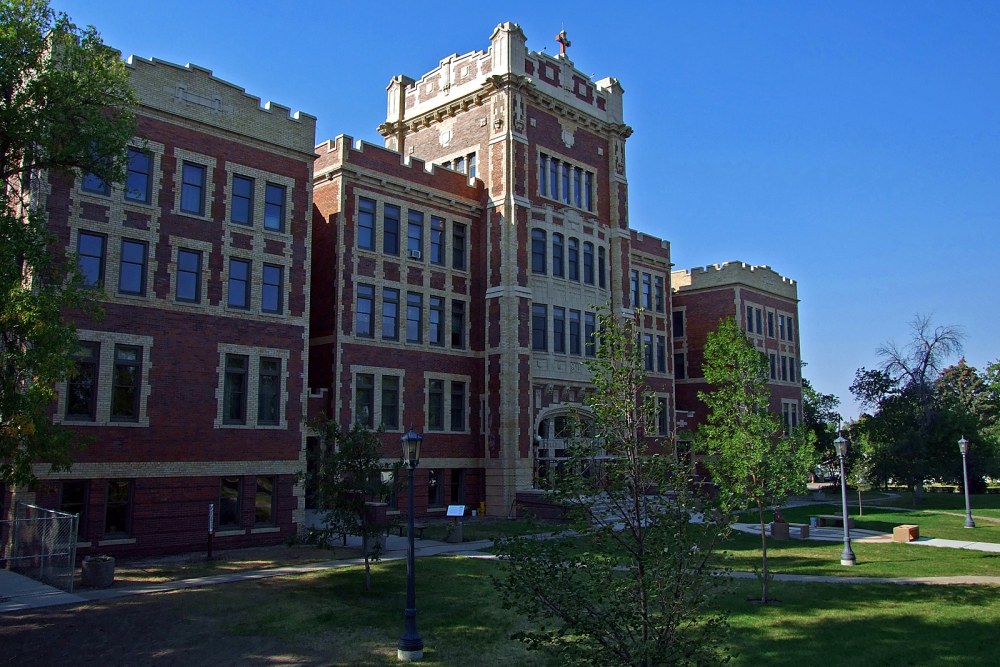Catholic boarding school documents staying in Montana

The Ursuline Academy, which opened in 1912 in Great Falls, Montana. (Photo by Robstutz used via Creative Commons license)
In a significant turn of events, an array of Catholic Ursuline Boarding School documents related to the boarding school students of several Indigenous nations in Montana and Alaska will remain in Montana. Several U-Hauls loaded with everyday records, photos, ledgers, scrapbooks, and other archives were originally slated to transfer to the Catholic Jesuits in Boston, Massachusetts.
It's considered win for area tribes whose children attended the former Ursuline Academy starting in 1912, because keeping the archives at home in Great Falls History Museum allows easier access to area descendants researching their family histories.
“The ever-increasing need for research and documentation of our Tribal encounters and associations with others is becoming more urgent each passing year,” Steve Lozar, Confederated Salish, Kootenai and Pend d’Oreille, said in a statement to the museum. “Having a centralized repository with access to family historical records would be of the greatest value to all who desire to learn about their extended families, religious affiliations, births, deaths and life circumstances.”




